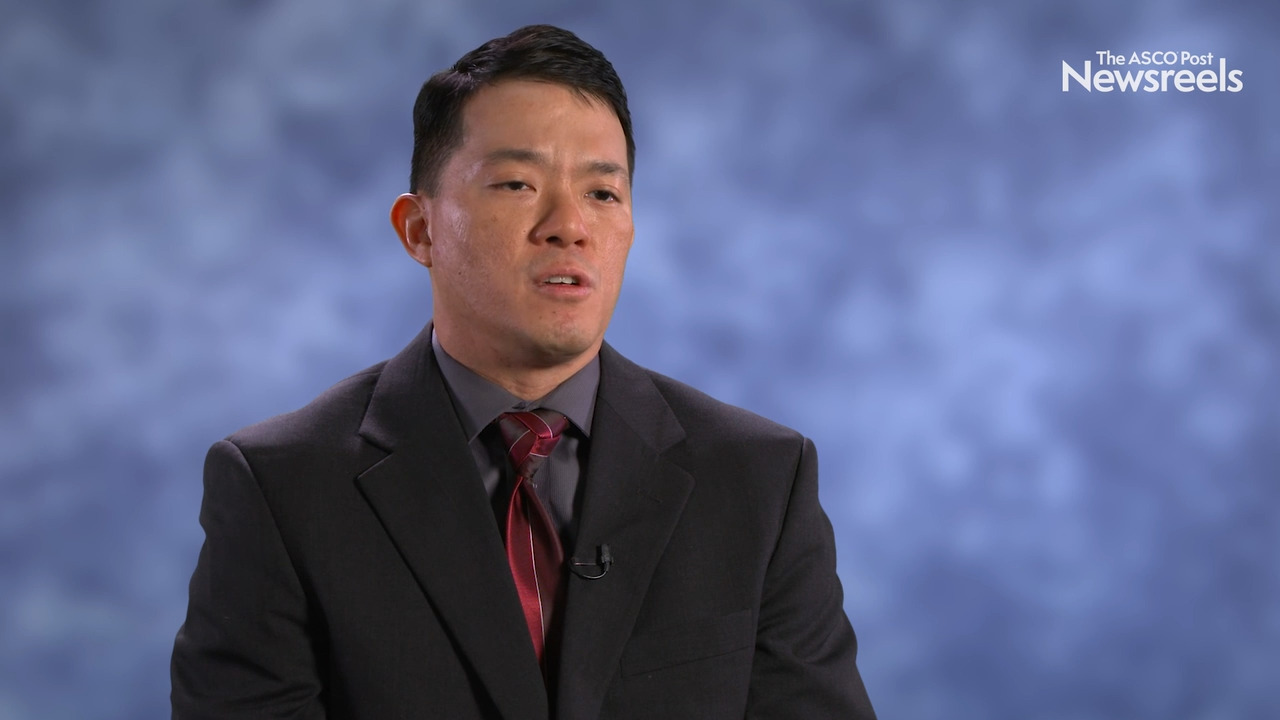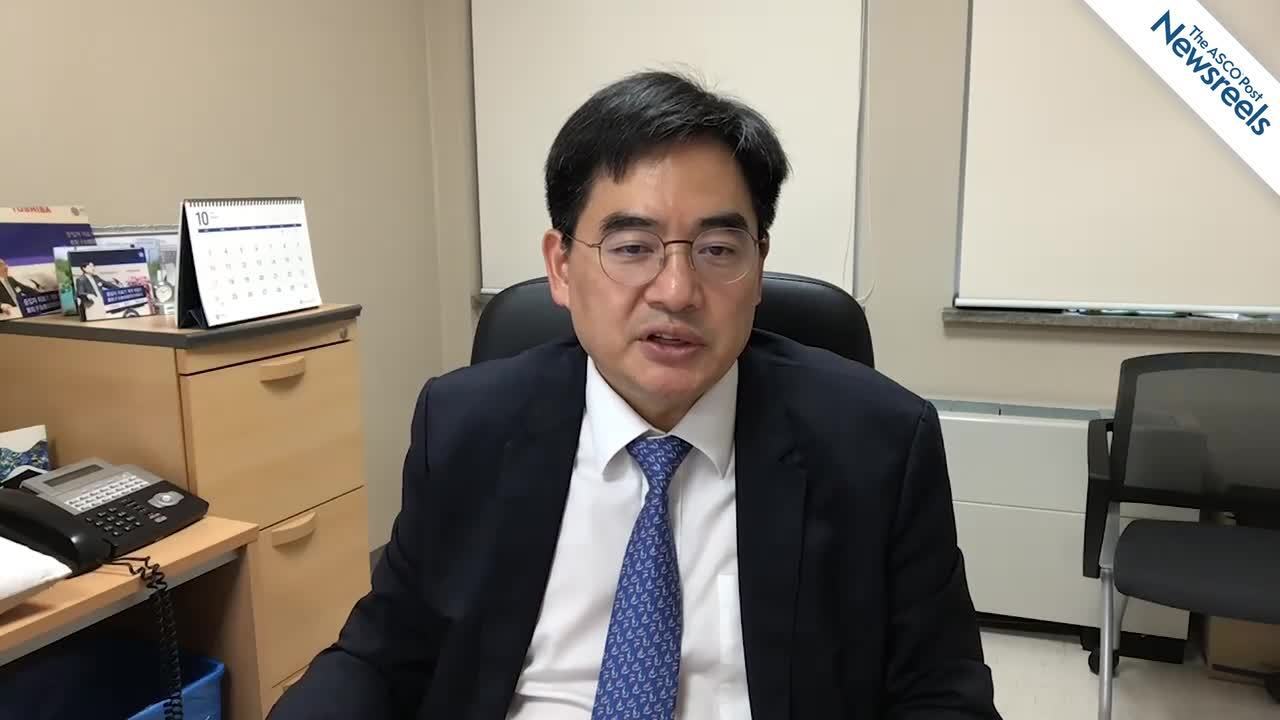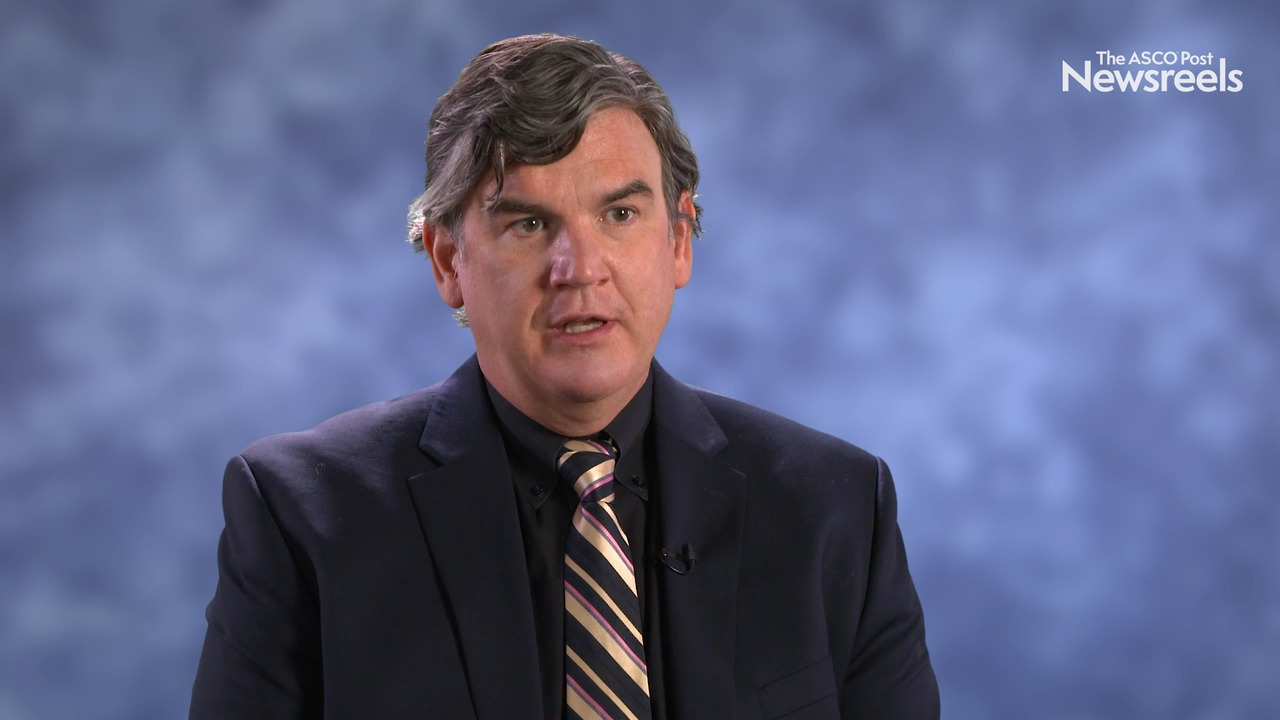Diana D. Shi, MD, on IDH-Mutant Gliomas: De Novo Pyrmidine Synthesis Inhibitor Under Study
2021 ASTRO Annual Meeting
Diana D. Shi, MD, of Dana-Farber Cancer Institute and Brigham and Women’s Cancer Center, discusses studies being planned and already underway to test BAY 2402234, a de novo pyrimidine synthesis inhibitor that possibly could be used clinically to target IDH-mutant gliomas and may act as a tumor-selective radiosensitizer (Abstract 167).
The ASCO Post Staff
C. Jillian Tsai, MD, PhD, of Memorial Sloan Kettering Cancer Center, discusses results from the first randomized trial of stereotactic body radiation therapy (SBRT) to treat oligoprogressive, metastatic lung and breast cancers. The standard of care for patients with these types of tumors is to switch to a different systemic treatment. Adding local therapy such as SBRT may help treat drug-resistant lesions (Abstract LBA3).
The ASCO Post Staff
Daniel J. Ma, MD, of the Mayo Clinic Alix School of Medicine, discusses results from a phase III study of patients with HPV-associated oropharyngeal squamous cell carcinoma. Comparing a 2-week course of de-escalated adjuvant radiation therapy with the standard 6-week course, investigators found that the shorter treatment appeared to have less toxicity, higher quality of life, and similar disease control as the longer standard-of-care treatment (Abstract LBA1).
The ASCO Post Staff
Yongbae Kim, MD, of the Yonsei Cancer Center and Yonsei University College of Medicine, discusses findings that showed the use of internal mammary area irradiation (IMNI) in regional nodal irradiation did not significantly improve disease-free survival for women with node-positive breast cancer. However, patients with medially or centrally located tumors may be considered for treatment with IMNI (Abstract 2).
The ASCO Post Staff
Howard M. Sandler, MD, of Cedars-Sinai Medical Center, discusses whether hypofractionation can be safely employed in the post-prostatectomy setting and the role of short-term hormone therapy in the management of intermediate-risk prostate cancer with radiotherapy.
The ASCO Post Staff
Matthew Manning, MD, of Cone Health Cancer Center, discusses findings that showed changes to the way cancer care is delivered may help eliminate racial disparities in survival among patients with early-stage lung and breast cancers. Identifying and addressing obstacles that kept patients from finishing radiation treatments for cancer were associated with improved 5-year survival rates for all patients (Abstract 53).





